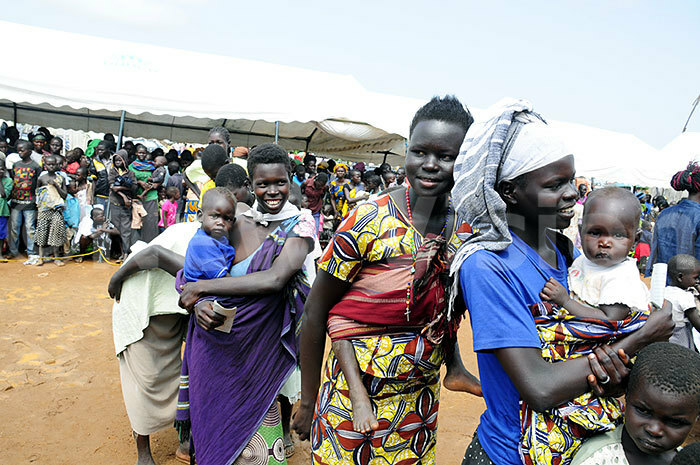Health ministry dispatches vaccines for child refugees
Jul 20, 2016
"We have already dispatched vaccines to border districts like Adjumani that are receiving refugees."

KAMPALA - The ministry of health has enough stock of vaccines to cater for South Sudan child refugees who have since last week fled their country due to political instability.
Dr. Henry Luzze, who is the deputy manager of Uganda National Expanded Program on Immunisation, said the immunisation program at the ministry is prepared for all eventualities including migrating populations.
"We have already dispatched vaccines to border districts like Adjumani that are receiving refugees and the refugees have been gazetted to camps where our officials can reach them," he said.
Luzze was speaking on the sidelines of a meeting where journalists where oriented on routine immunisation on Wednesday in Kampala.

Dr. Henry Luzze told reporters the health ministry has dispatched vaccines to border districts. (Credit: Godiver Asege)
According to a press statement by United Nations High Commissioner for Refugees, the number of people seeking shelter and safety in Uganda from South Sudan has risen significantly in the past few days and the influx is expected to increase in the days ahead as tensions remain high across the border.
A total of 1,326 crossed into Uganda between Friday and Saturday, with 1,633 more arriving on Sunday.
The majority are South Sudanese, but there are also believed to be some Ugandans. Prior to Friday, the average daily rate was 233. More than 90 per cent of the new arrivals were women and children under the age of 18 years.
The health ministry has carried out several immunisation countrywide exercises meant to protect children under the age of five against the killer diseases.

Majority of ther latest arrivals are women and children. (Credit: Eddie Ssejjoba)
The ministry and WHO in 2002 increased the number of immunisable diseases in Uganda from the traditional six to eight before the baby is one-year-old. They are measles, polio, tuberculosis, whooping cough, tetanus, hepatitis B, influenza B and diphtheria.
Approximately 1.5 million babies are born in Uganda each year. The country spends over sh38.2b on immunization every year, sh26b of which comes from Gavi.
As part of Uganda's polio endgame, Government recently introduced a new injectable polio vaccine into the current routine immunisation exercise that is meant to strengthen routine immunisation services.
Completing the immunisation schedule helps a child get adequate protection from all the immunisable diseases. A child should be immunized at birth, six weeks, 10 weeks, 14 weeks and nine months.
